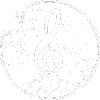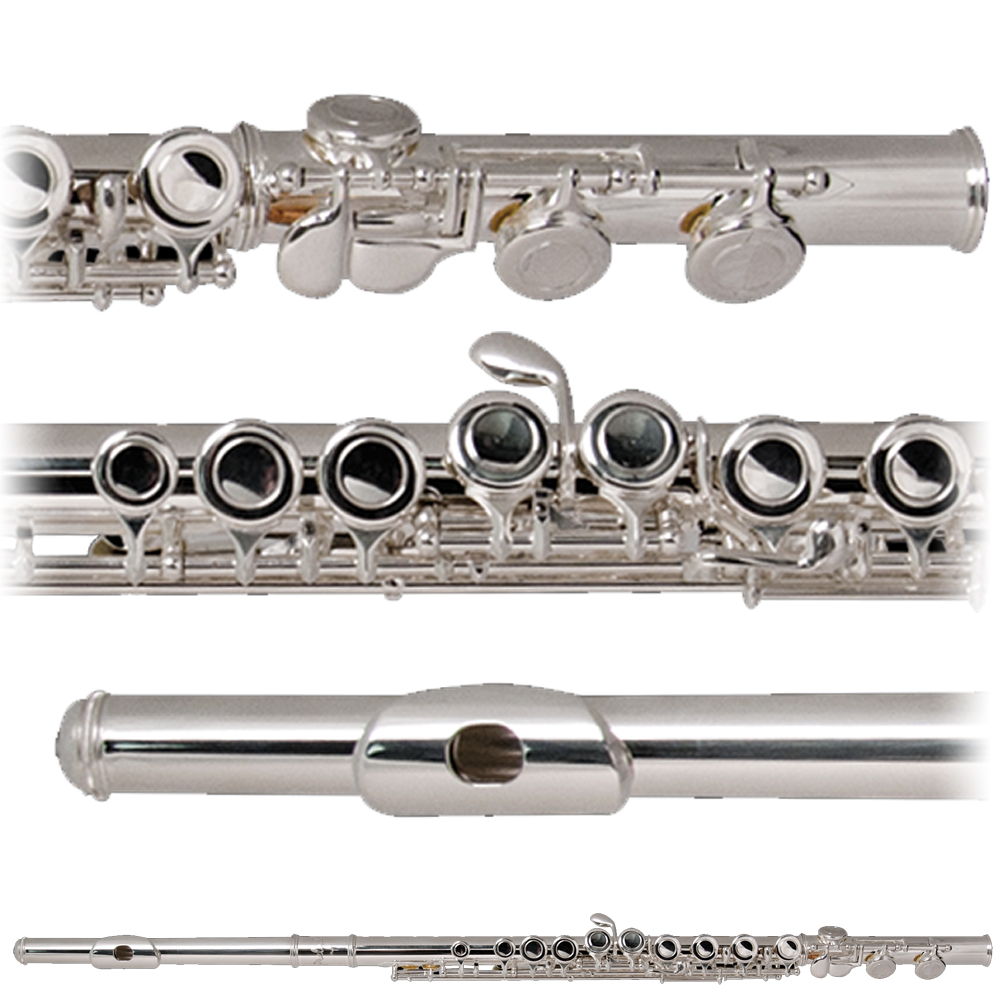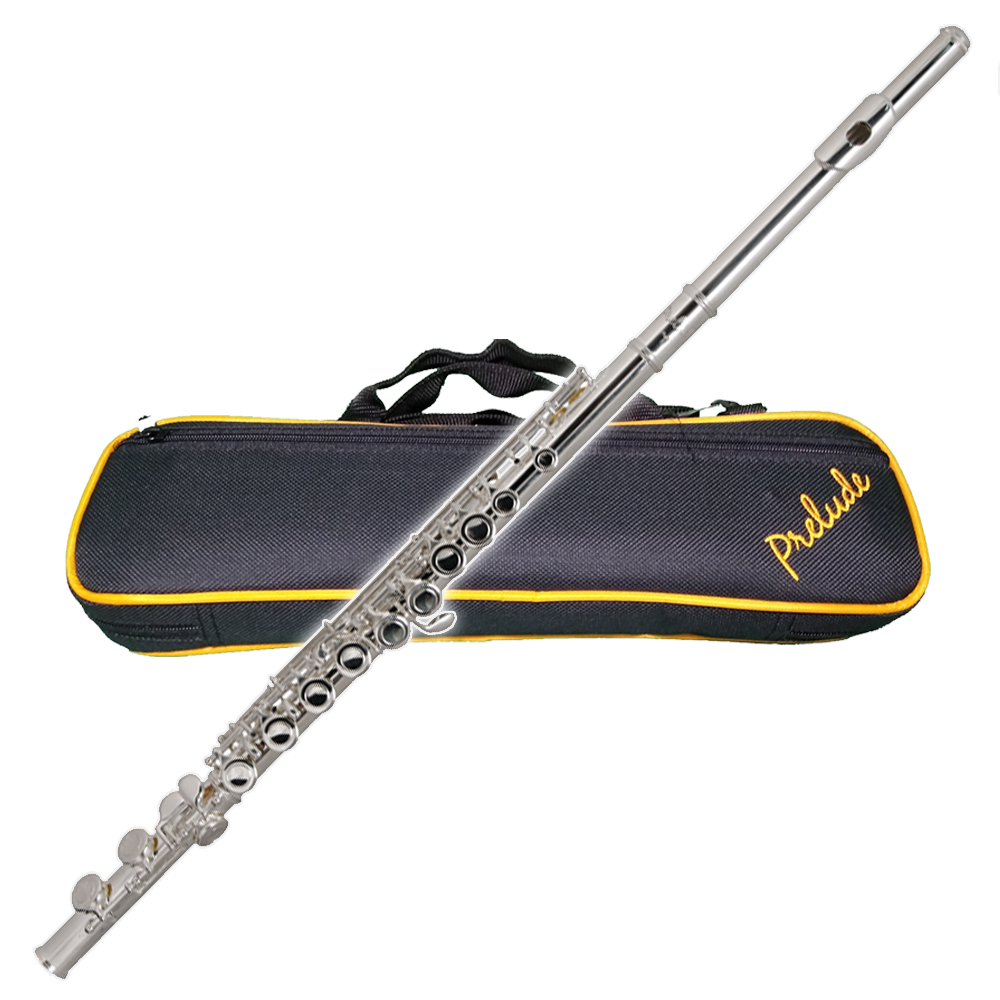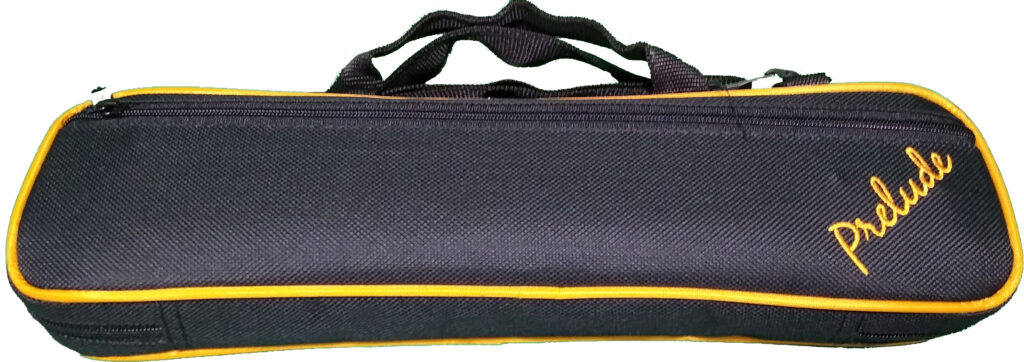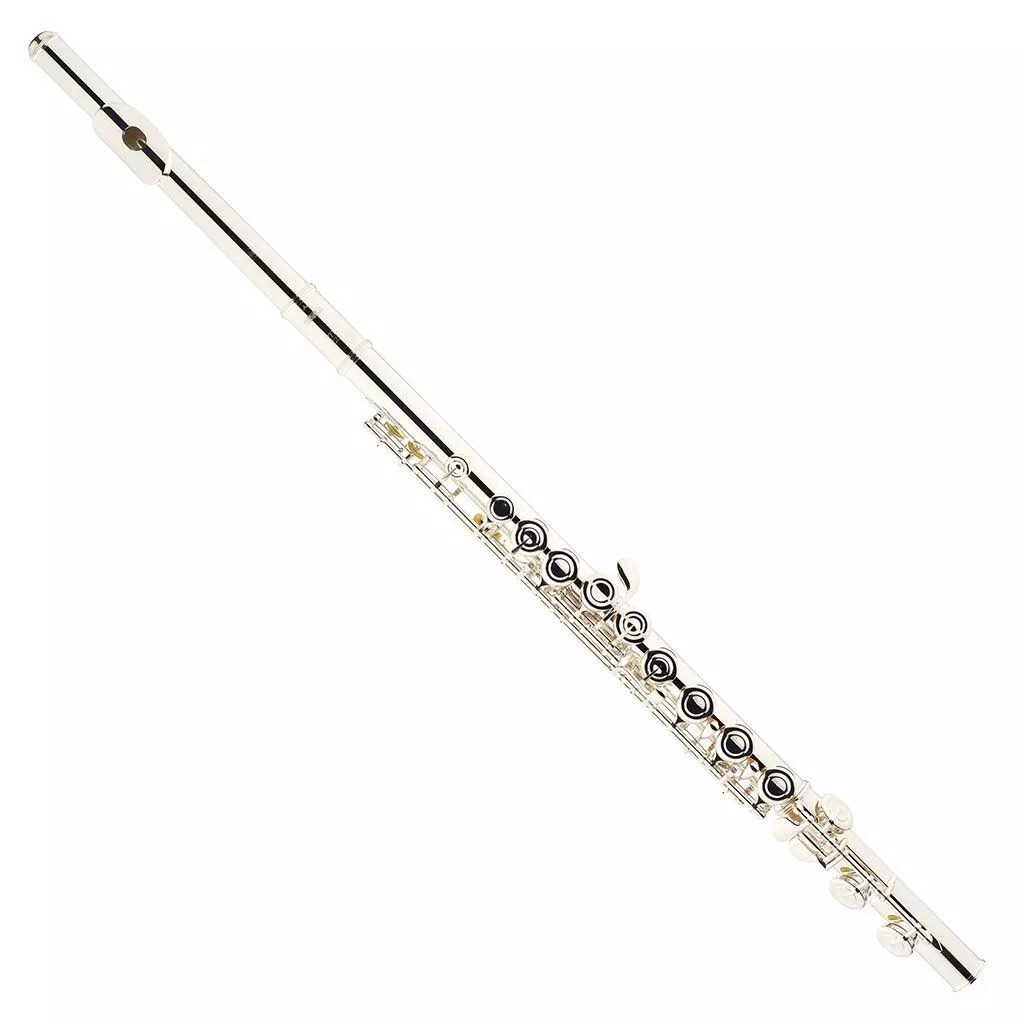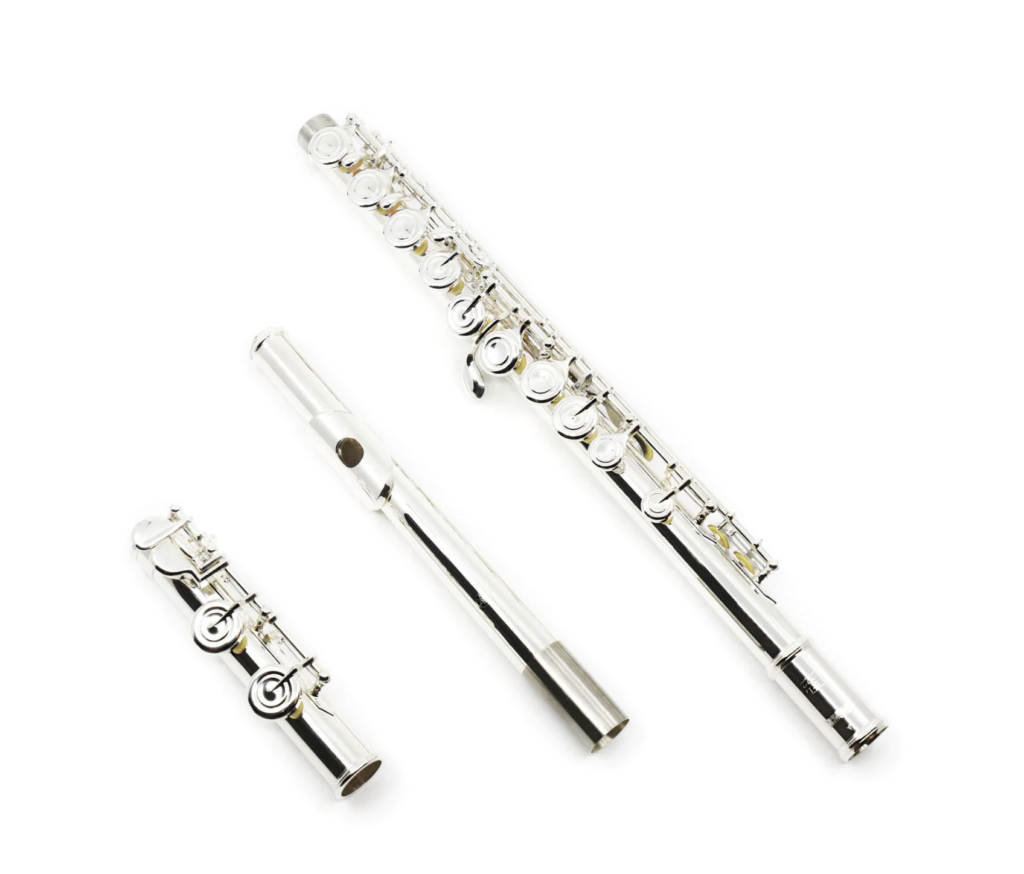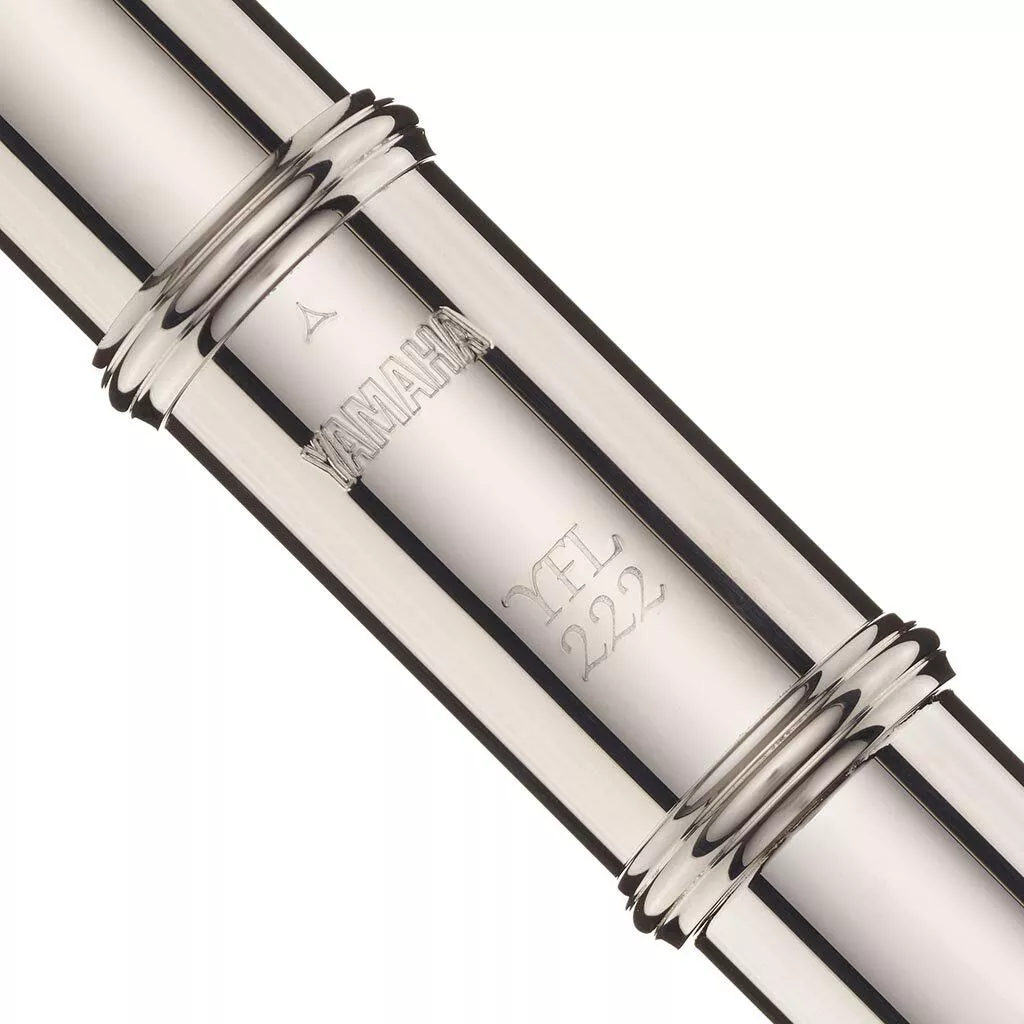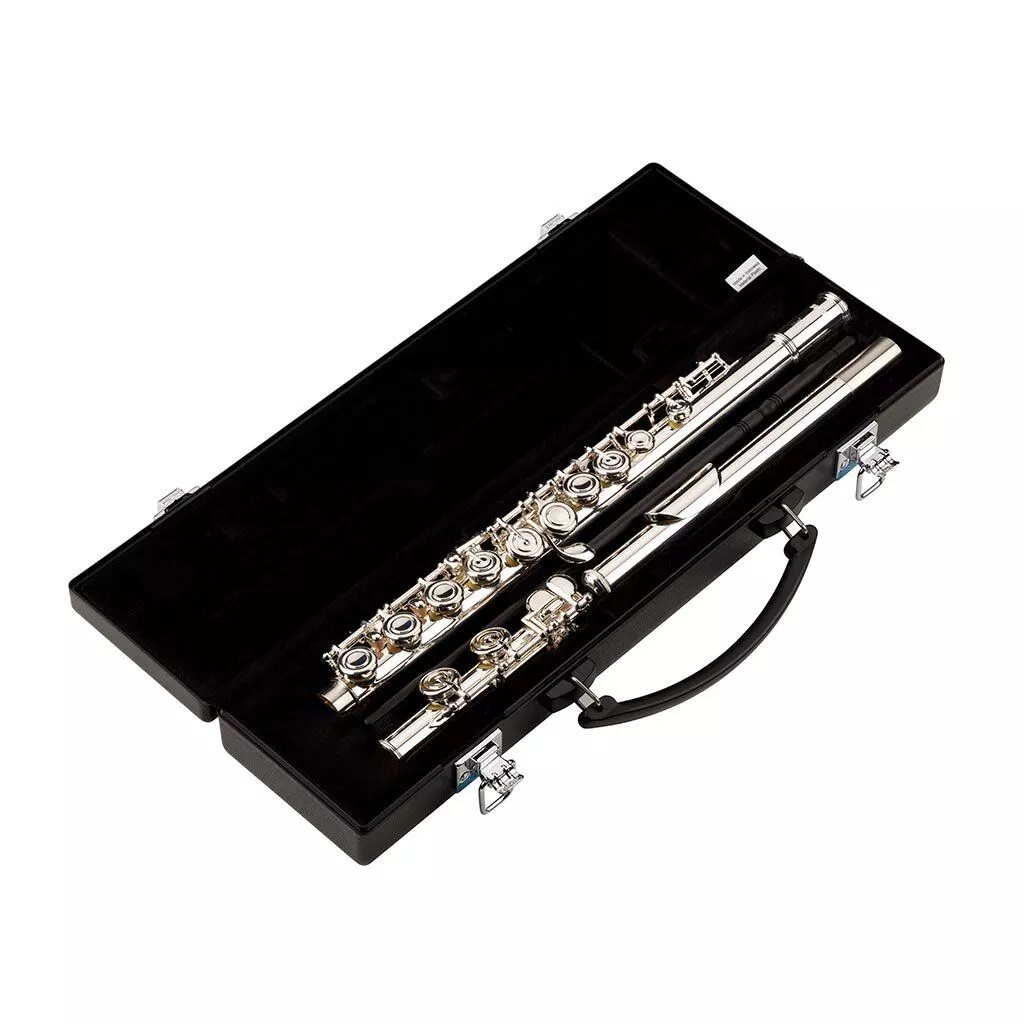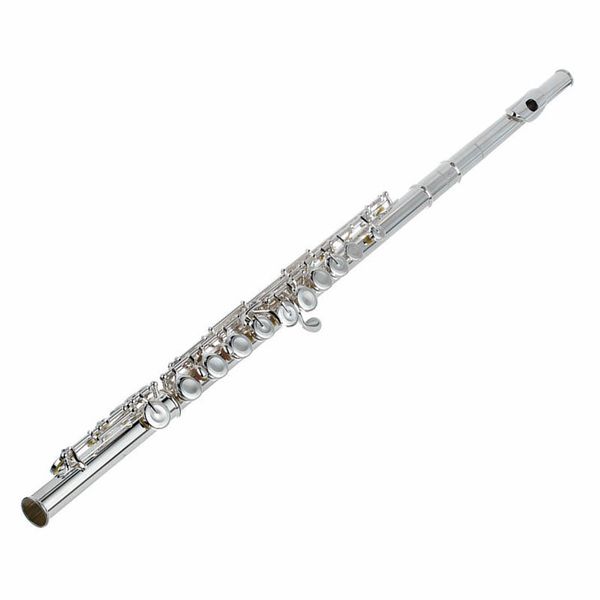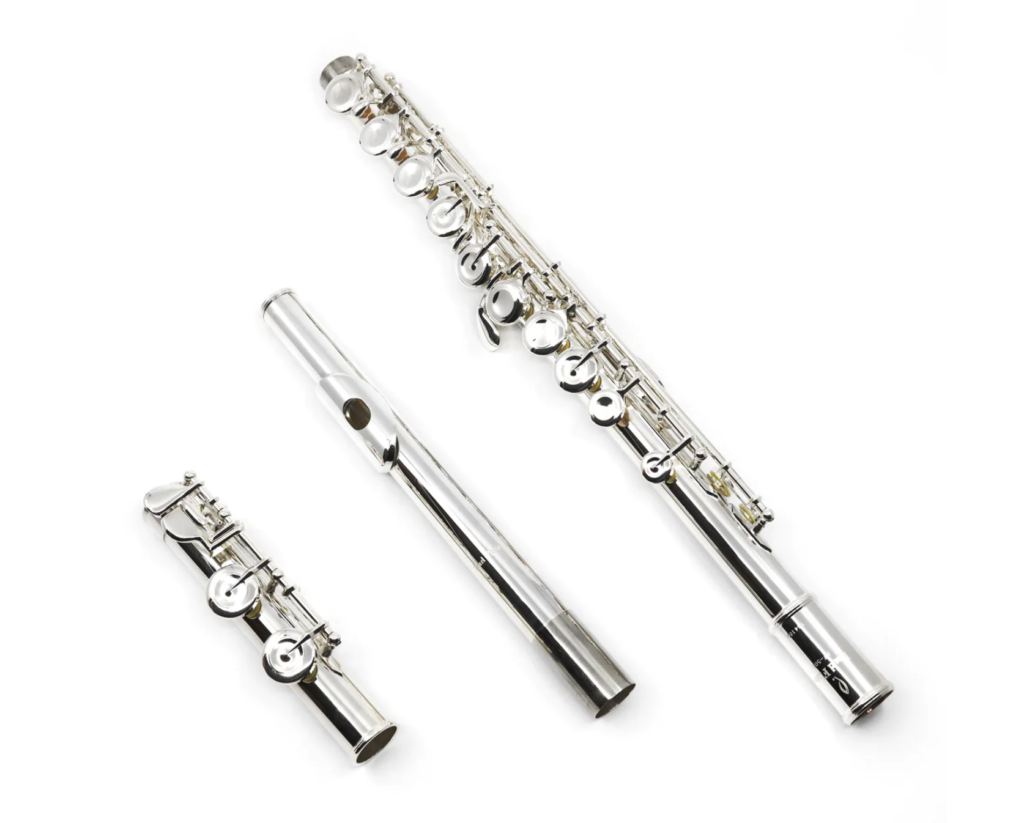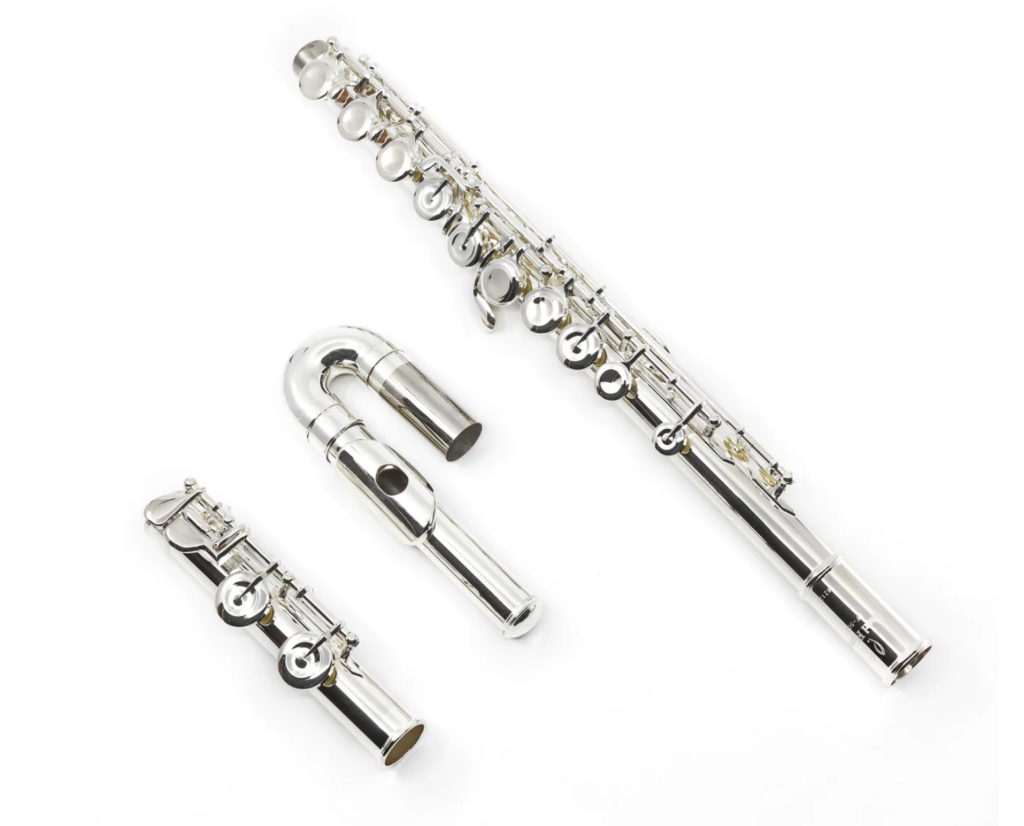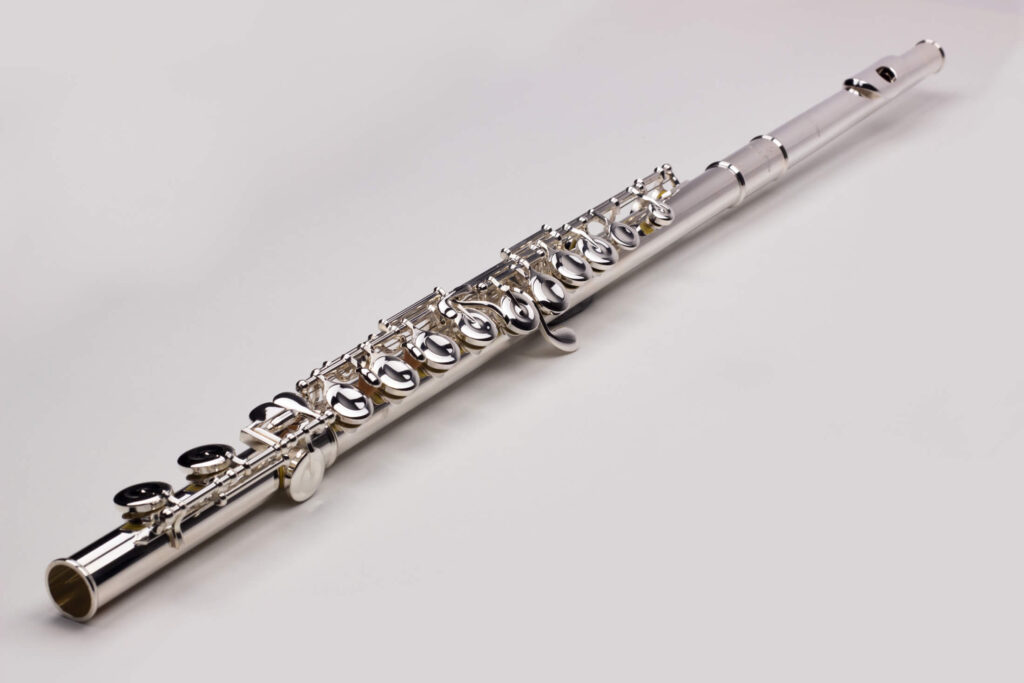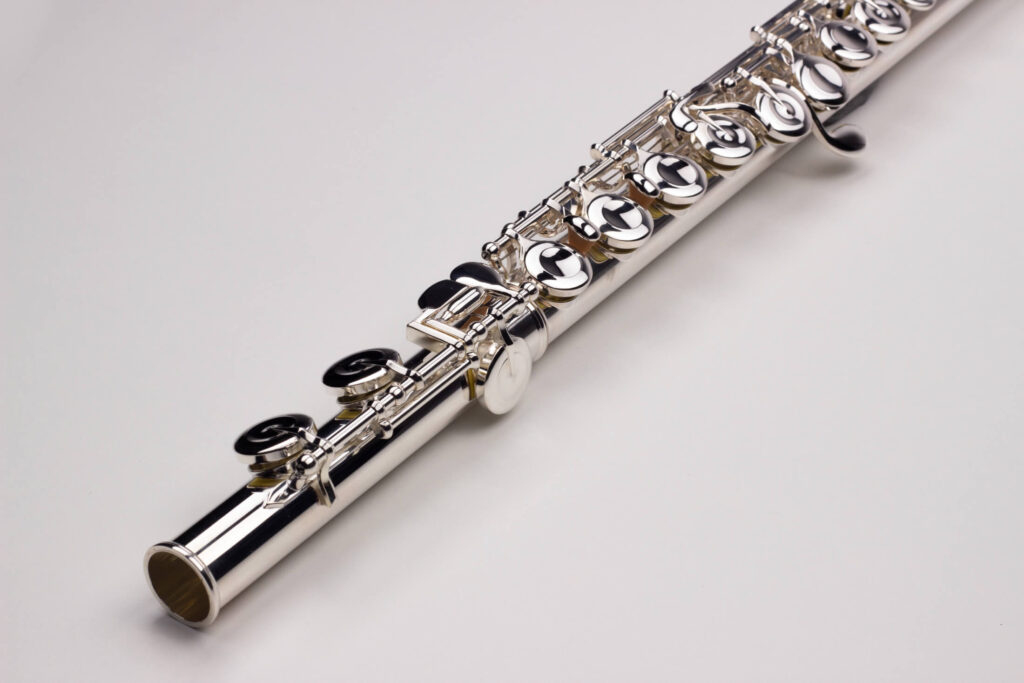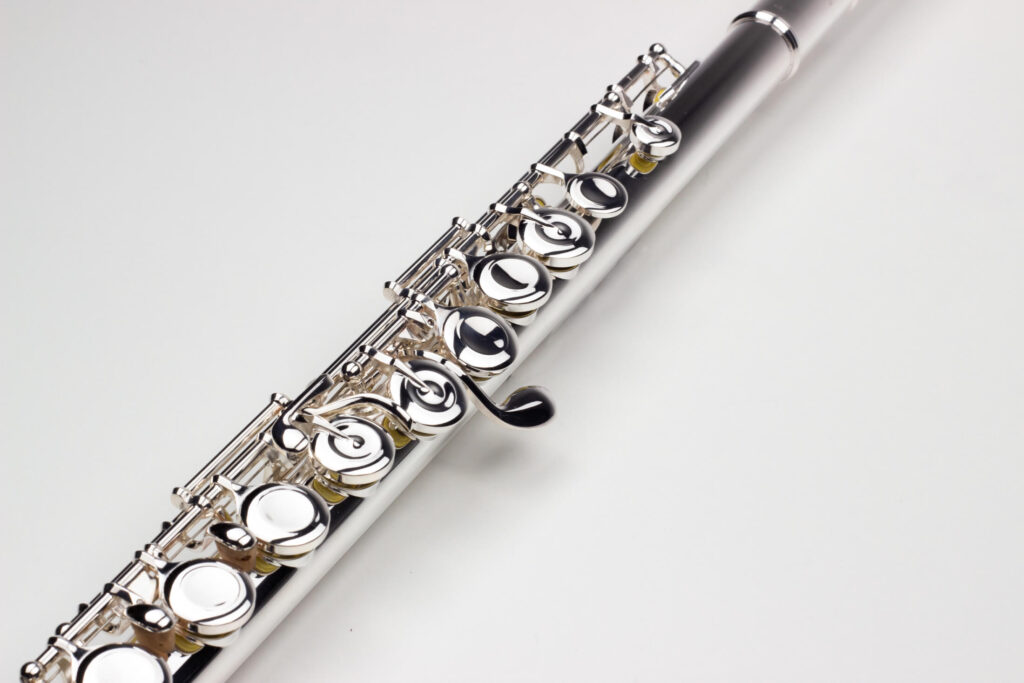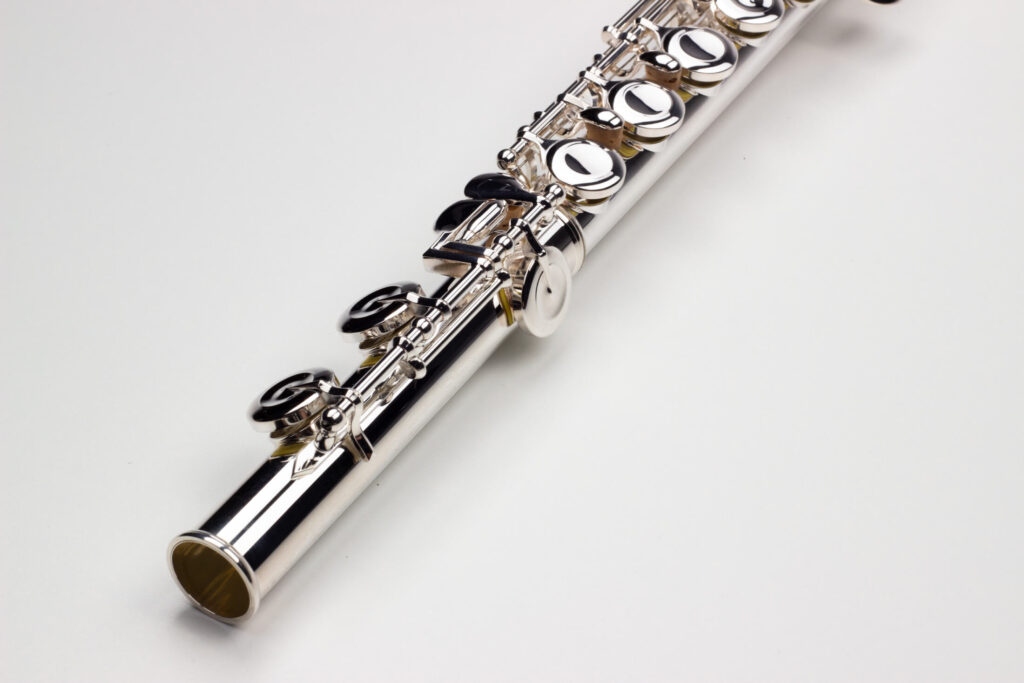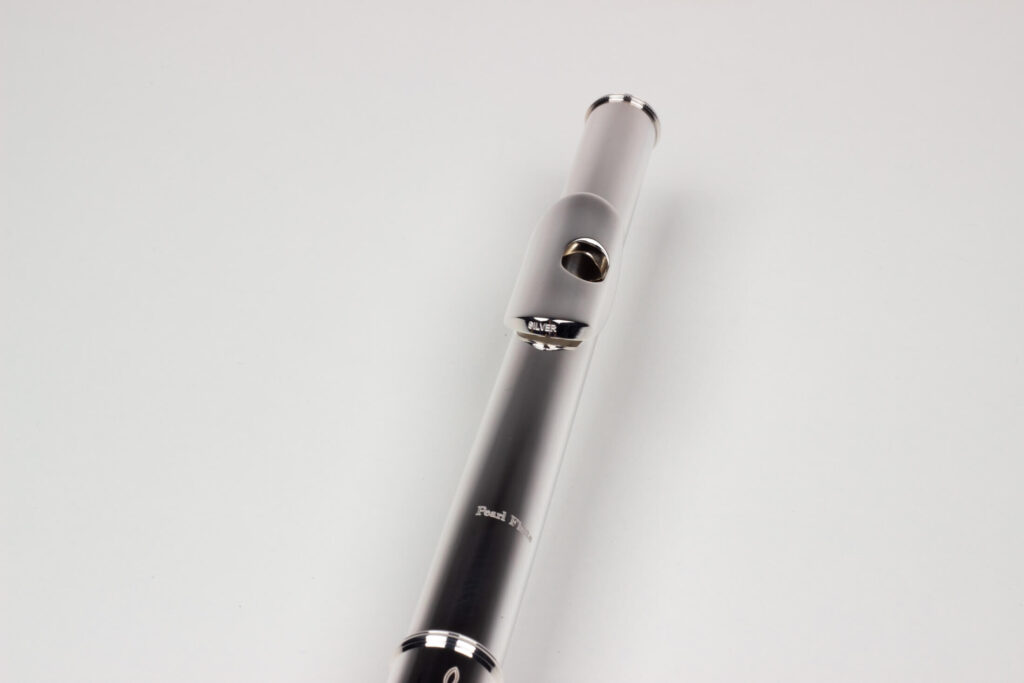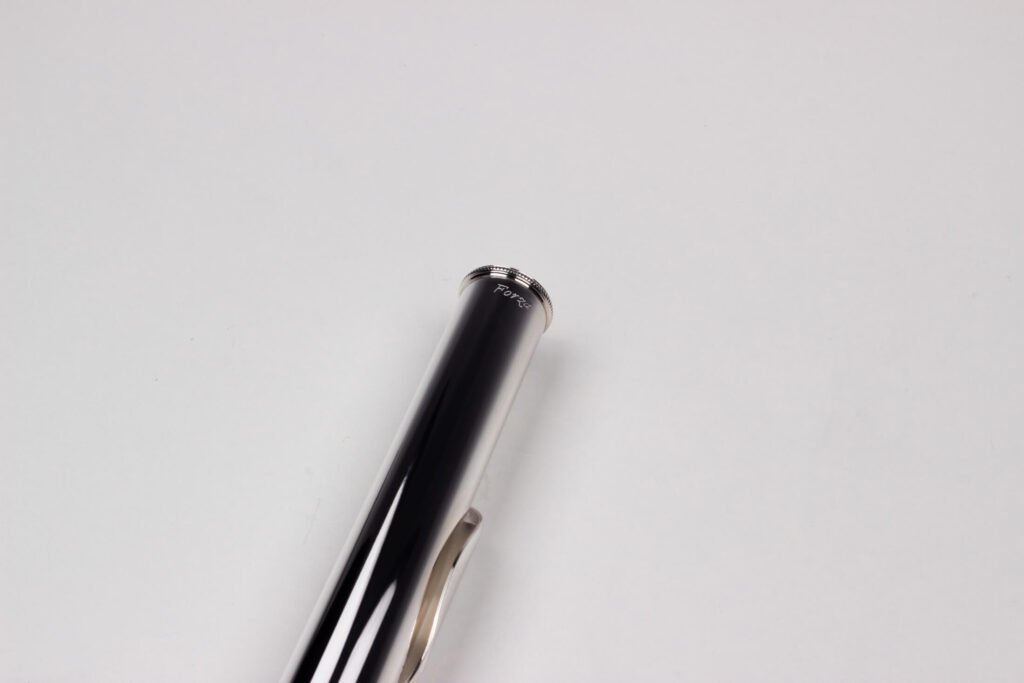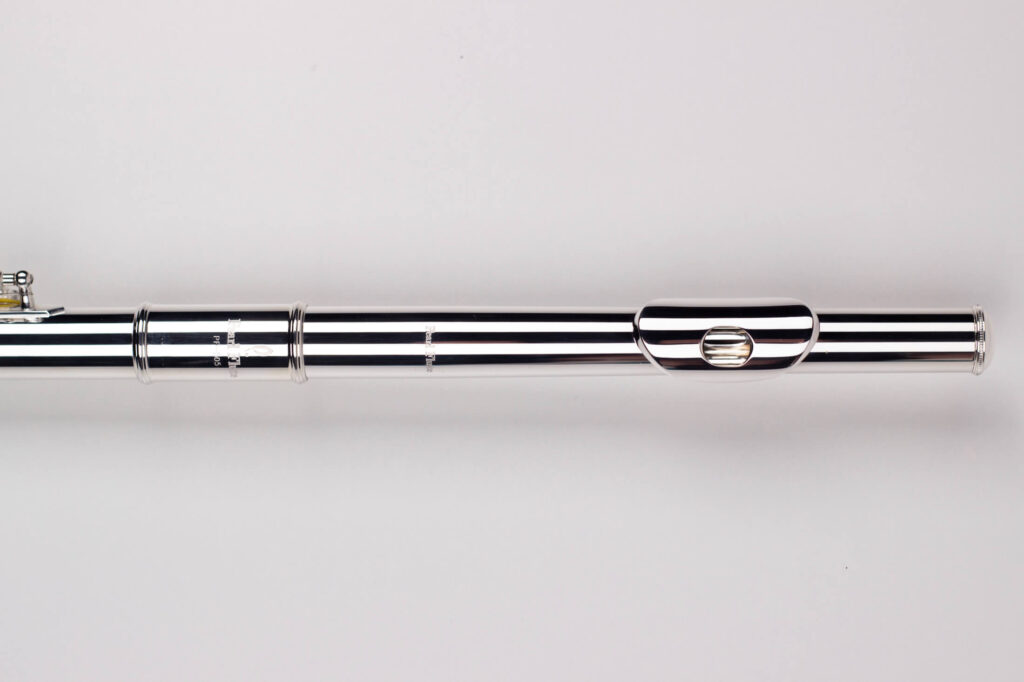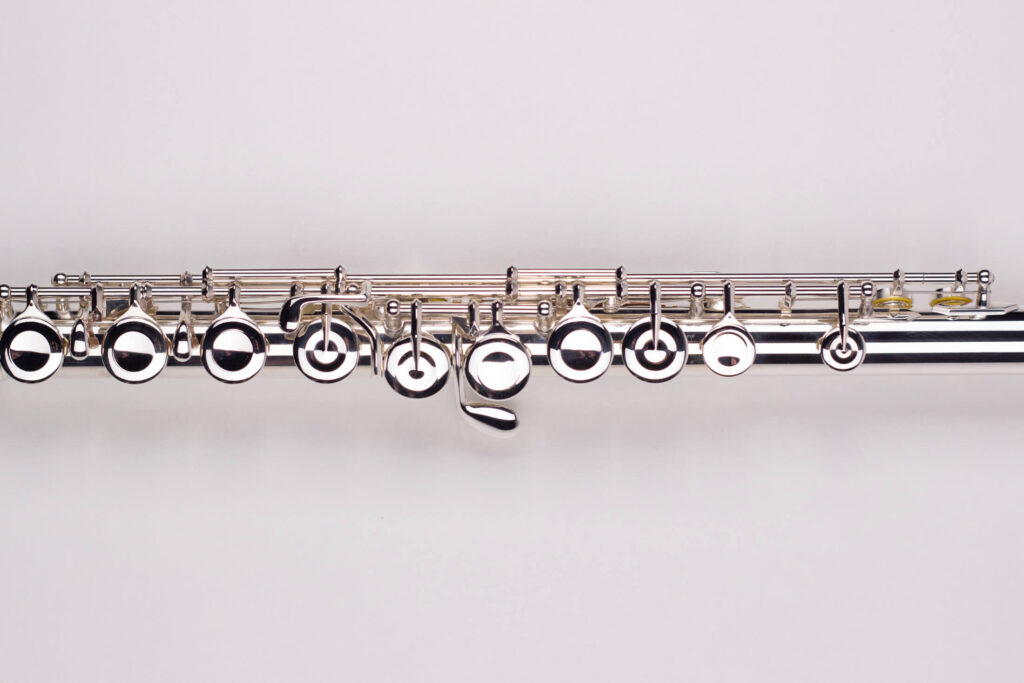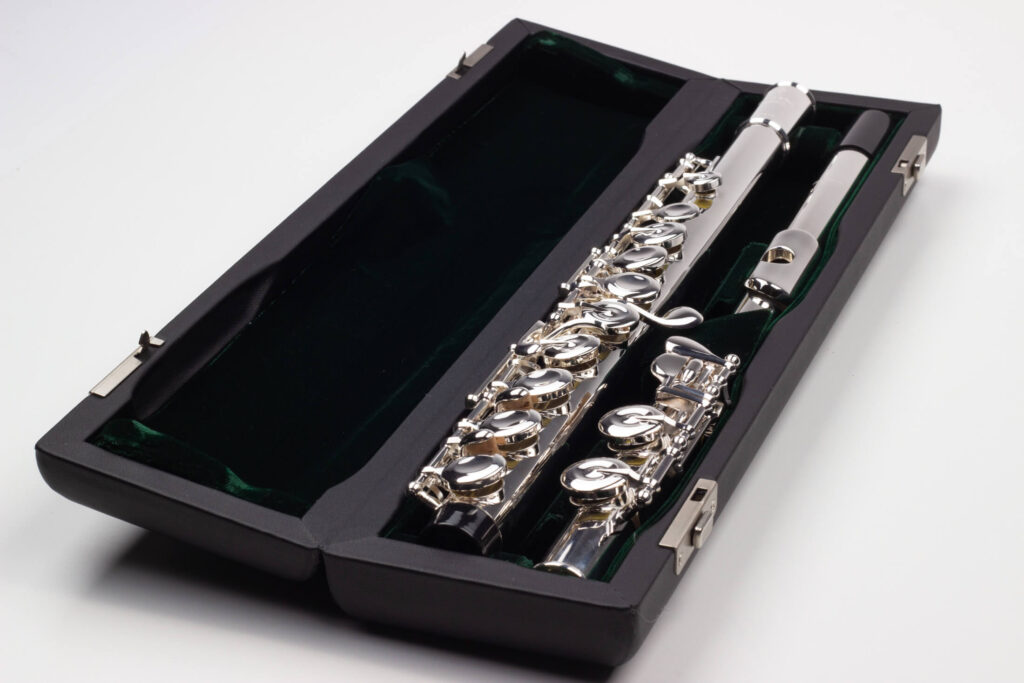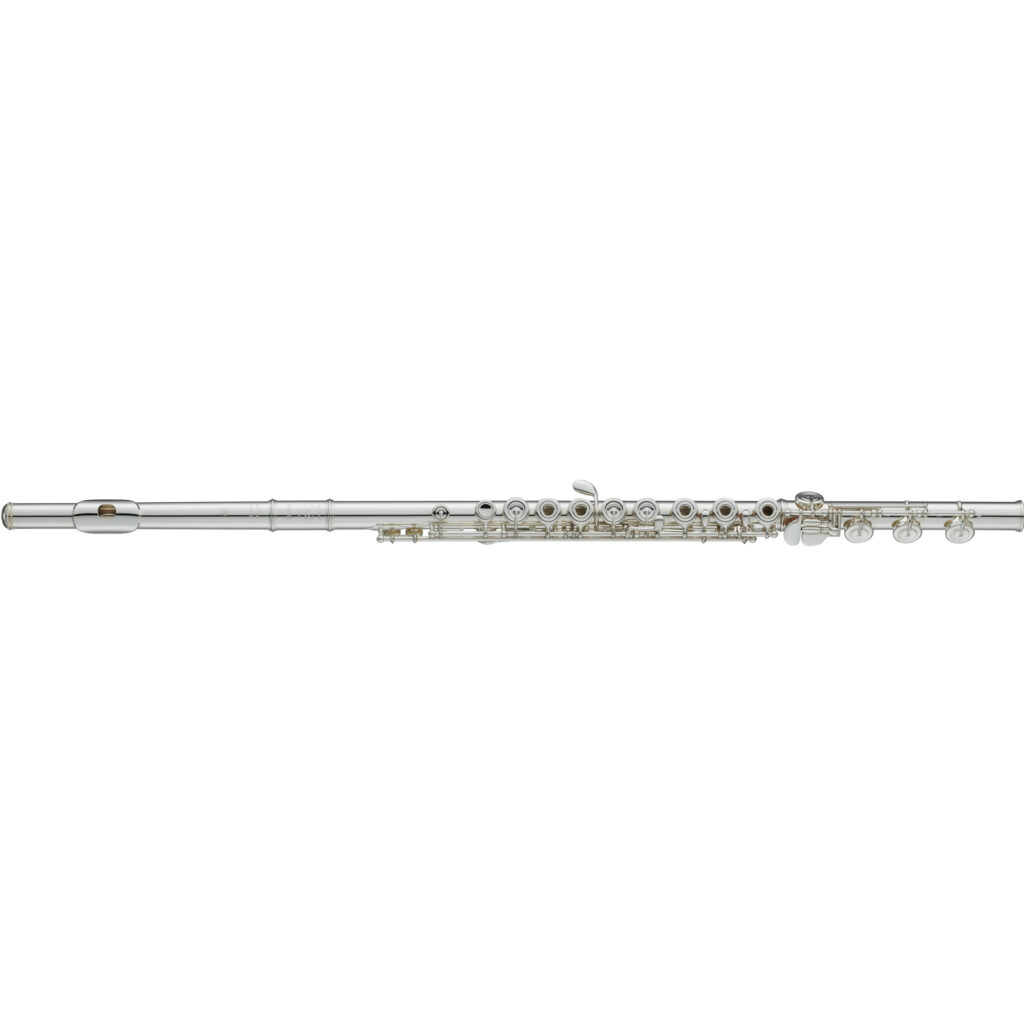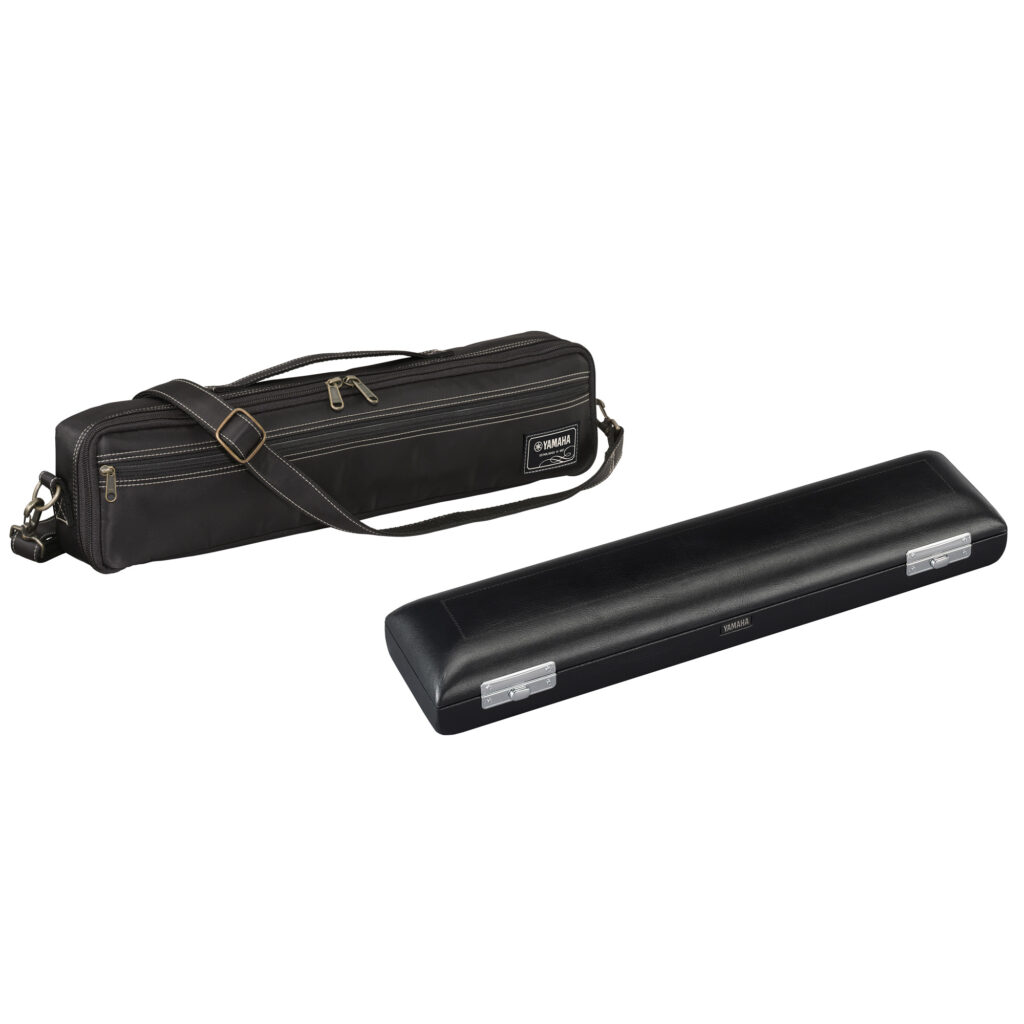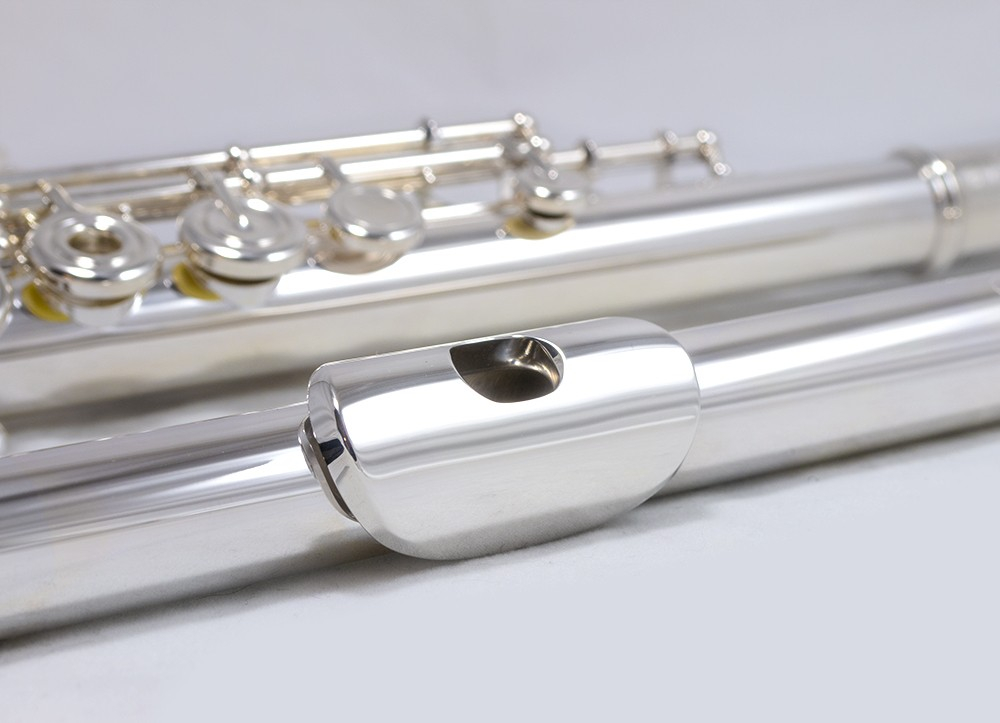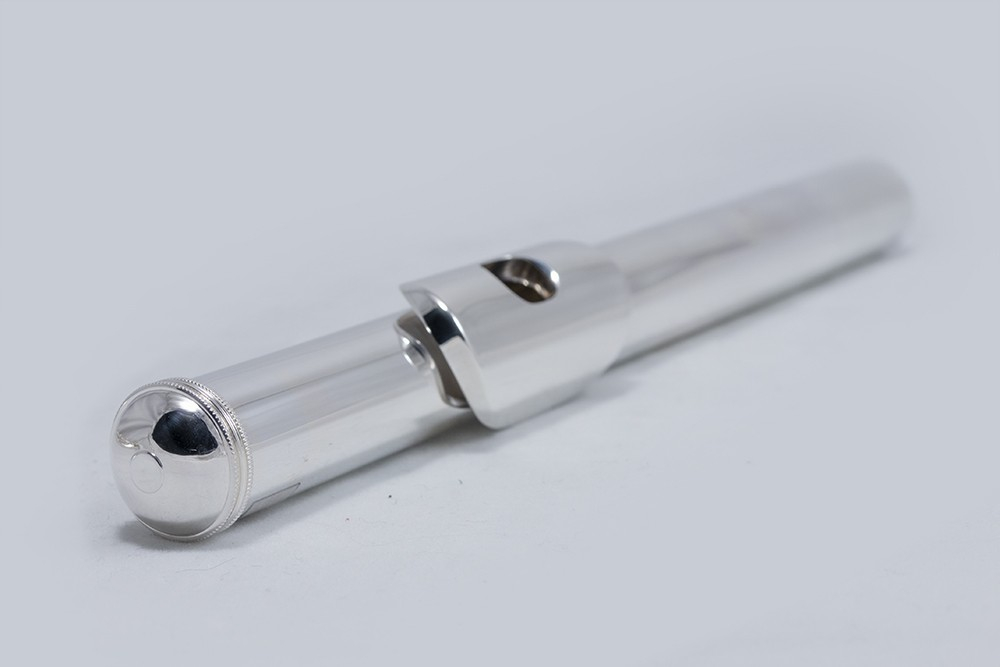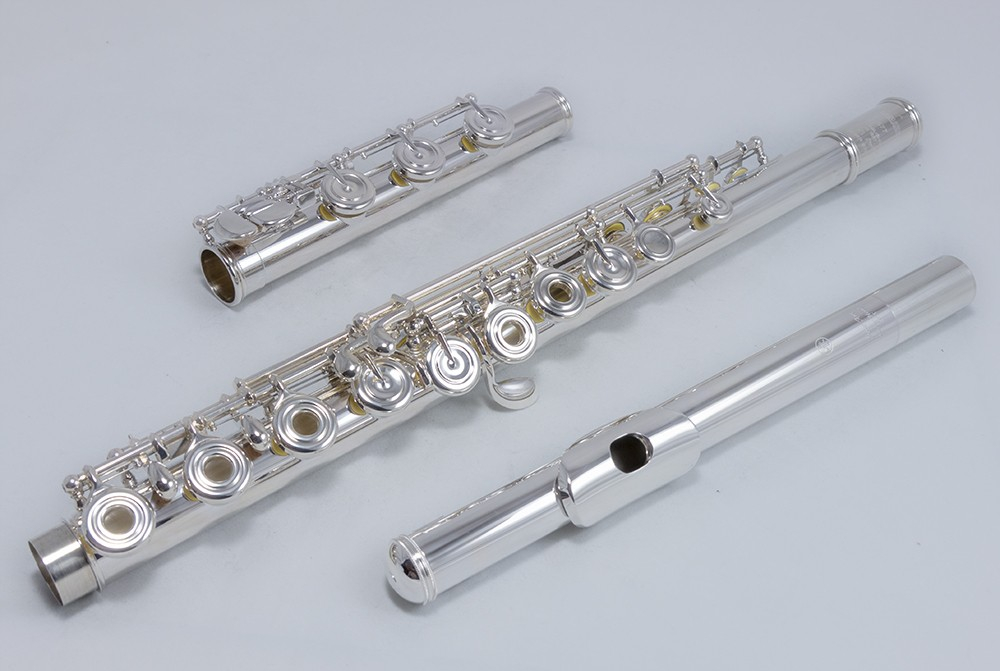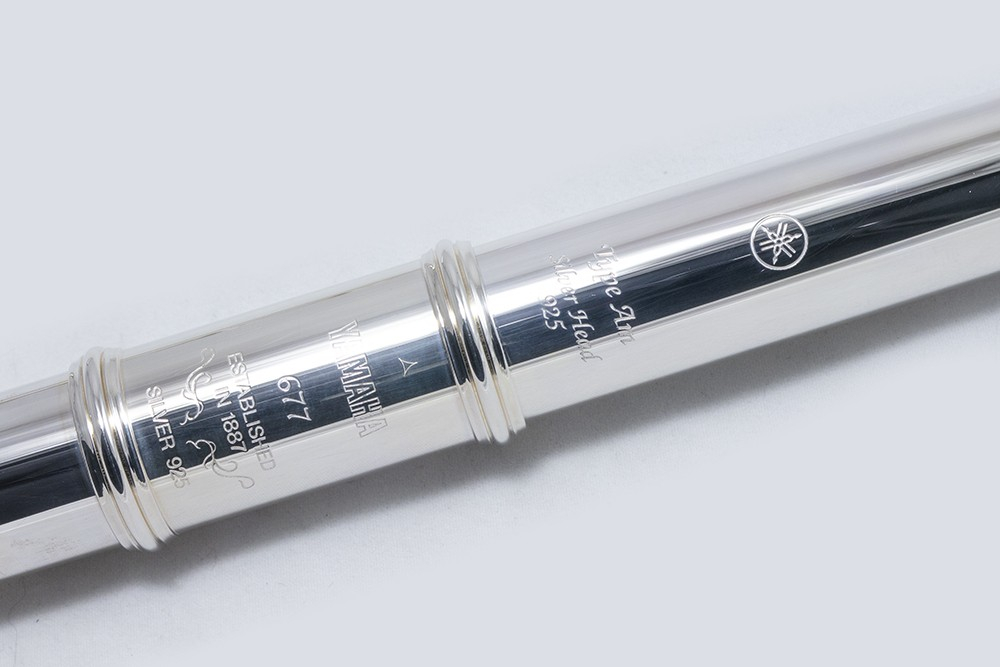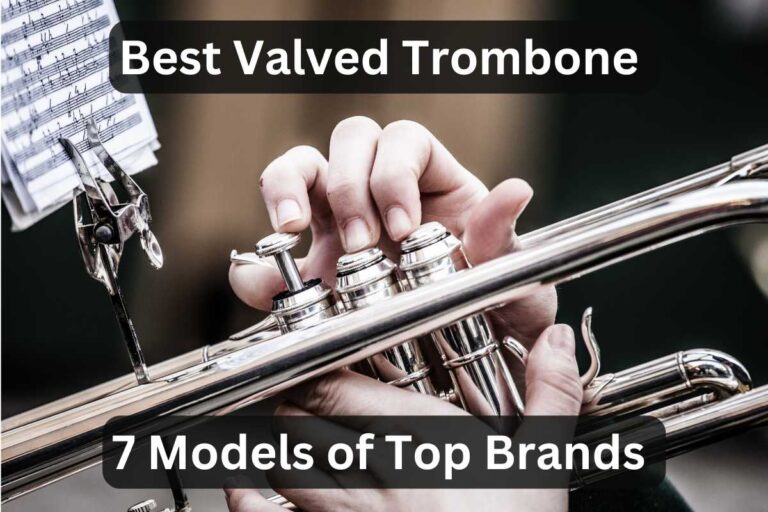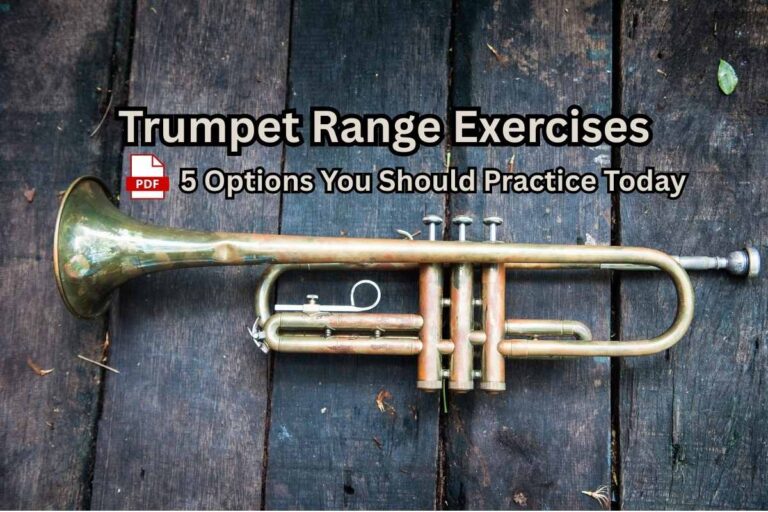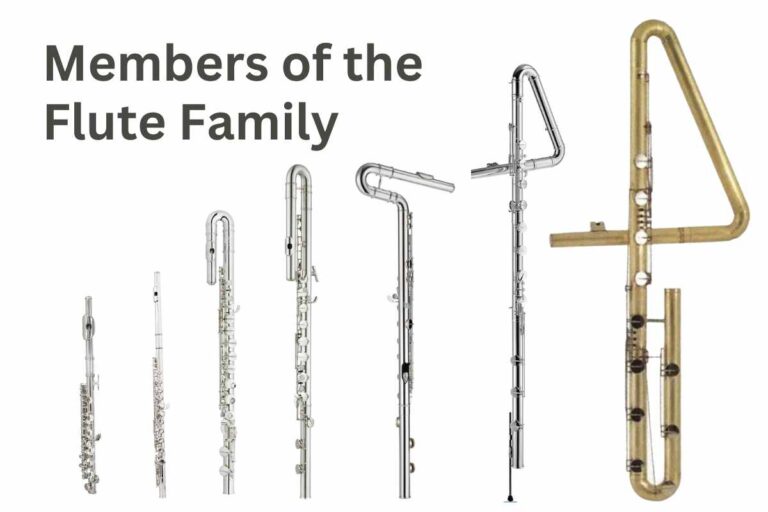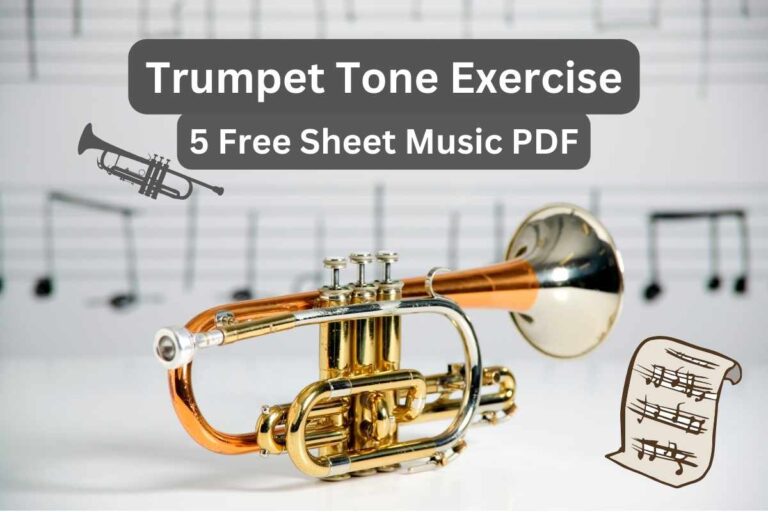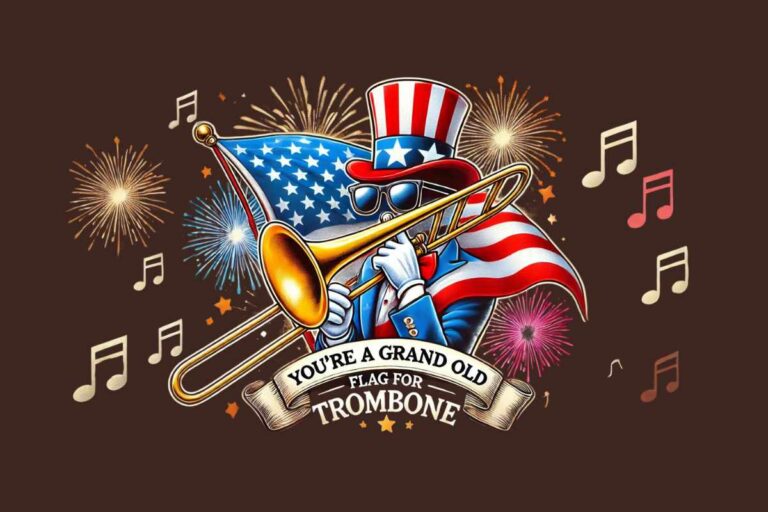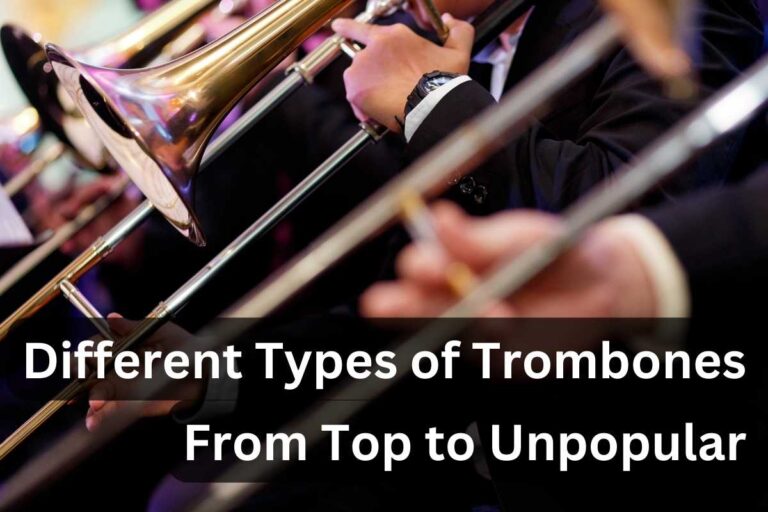Closed vs Open Hole Flute – Pros, Cons, 3 Best Models
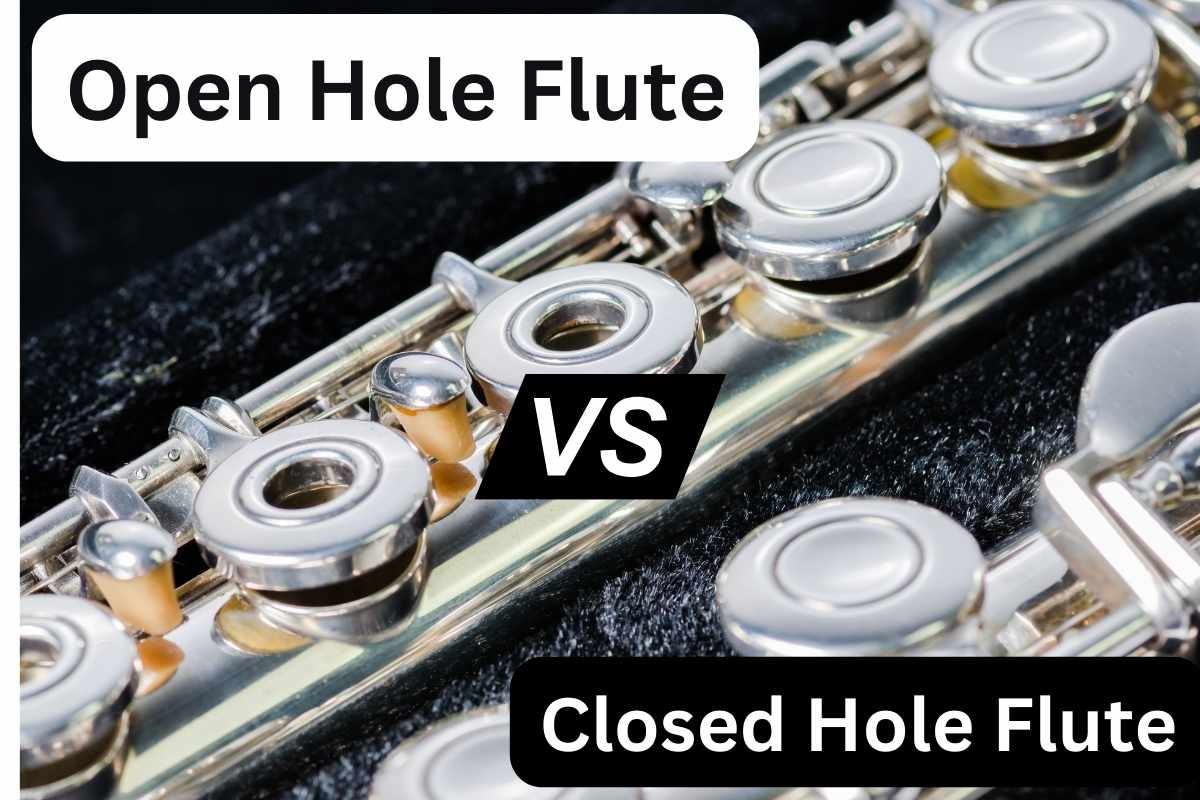
Picking out an instrument is hard for flutists — one key choice is between a closed and open hole flute.
Both types have advantages and drawbacks that you should consider prior to making a choice.
Let’s dive deep into the differences between closed hole flutes and open hole flutes, along with three models from each type. So sit back, grab some tea and let’s discover this wonderful world together!!
Closed Hole Flute vs Open Hole Flute – Main Difference
An open hole flute (French Model) features keys with small holes at their centers that you must cover using your fingertips to produce sweet sounds.
To create the “usual” flute sound, press down on keys and cover holes so as to keep air from escaping through them.
Open holes flutes feature slightly larger tone holes to accommodate their exposed holes.
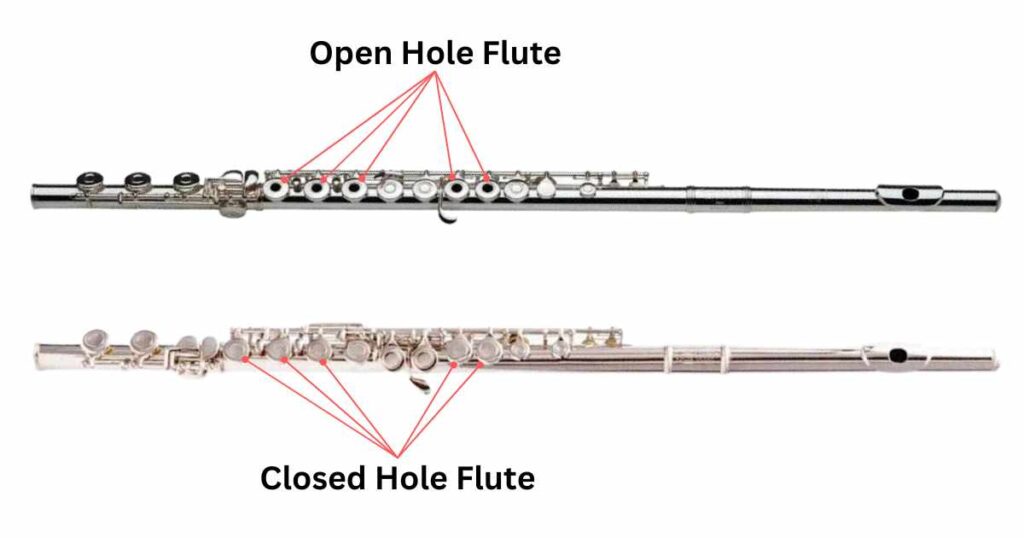
Closed hole flutes (often known as German, plateau flutes or solid keys) have keys with closed keys covering all holes on its body — no need to cover openings when playing…
…You simply press the keys down on a closed hole flute model flute to produce the correct sound!
In fact, open and closed hole flutes both feature closed keys. But open holed flutes feature five open keys on their body joint — A, G, F, E and D.
Note that this only pertains to concert flutes – piccolo, alto and bass are always closed hole flutes! Just an FYI!
Flute Anatomy – Understanding the Parts
There are three essential parts — the head joint, body and foot joints.
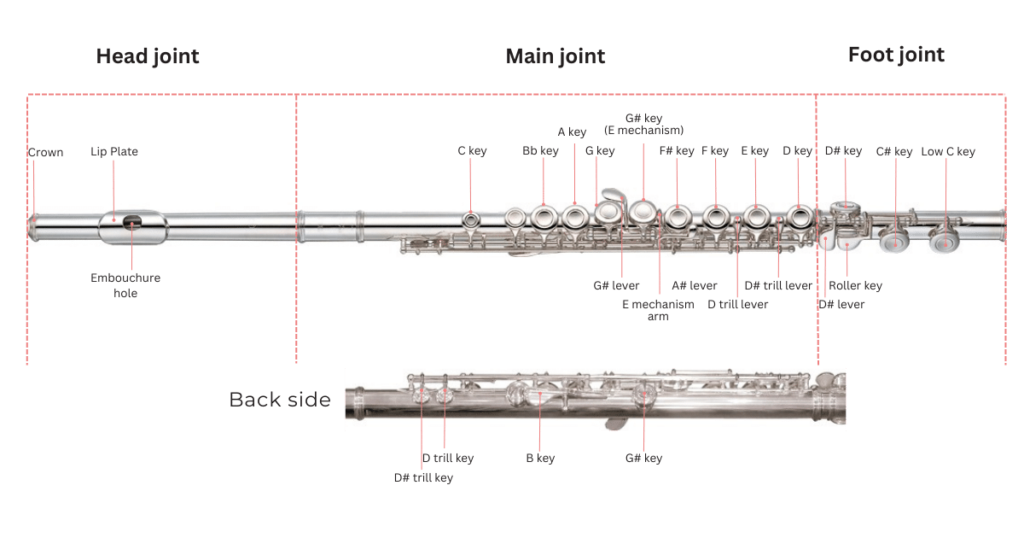
The head joint is the top part of the flute, featuring an embouchure hole and lip plate. You blow air into your instrument via the hole while your lower lip rests comfortably against the plate.
Cork at the head joint helps seal airflow and adjust flute length — it’s pretty neat, isn’t it?!
The body is a long, cylindrical joint with most keys and mechanisms!! It serves as the central “main tube,” connecting head and foot joints.
The foot joint has the keys that make the lower pitch. It’s the shortest part of the flute and fits your hand position nicely.
I see two types of foot joints today — C-foot joints have two keys, while B-foot joints offer three keys (including an extra semitone lower key).
Open Hole Flutes Review
As mentioned, open hole flute keys have 5 open key holes — some believe this helps make the flute more responsive.
Some say that open holes give you more flexibility in tone and better control.
Let’s discuss the advantages open holed flutes offer and their rise in popularity.
Intermediate – Advanced flutes
Open hole flutes will boost your playing game!
They’re designed for advanced players with strong fundamentals.
An intermediate player has proficiency with techniques including articulation, intonation and breath control. So you can begin mastering playing on open holes.
If you are a new or early intermediate flute player — an open hole flute may not be ideal.
Extended Techniques
Extended techniques are producing sound effects with an open hole flute.
Open holed flutes offer you all manner of contemporary effects like multiphonics, quarter tones and flutter tongue. You won’t believe what’s possible!!
You also can partially cover open keys in order to alter tuning when it becomes too sharp.
This opens up many exciting and engaging experiences to play contemporary music.
More Popular Among Pro Players
Professional musicians prefer open holed flutes.
This is partly due to more complex and sophisticated sounds compared to closed hole flutes.
Most professional flutes are custom-made and have open hole construction for better sound quality – all because of factors like high-quality metal, design and specifications (rather than the key type used.)
More Difficult to Play
Open hole flutes are harder for beginners than closed hole. That’s because instead of pressing pads down onto the holes, your fingers are actually covering them.
This can be challenging — especially when transitioning from a closed hole flute.
Make sure that all holes are completely sealed by using the pads of your fingers to close off all holes completely. Otherwise, air may escape and create that annoying whistling sound — we call that an “air leak.”
Getting the finger technique (finger placement) right for a clear and smooth sound takes practice and patience.
Generally More Expensive
Open hole flutes are pricier than closed hole flutes.
Manufacturing open holed flutes is a time-intensive process requiring expert craftsmanship — something only a few top flute brands have!!
But if you are really into music as a profession, having an exceptional instrument is a must!
An open hole flute is a worthwhile investment — when properly maintained, it provides many years of enjoyment.
Closed Hole Flutes Review
At first glance, an open-hole flute may seem the obvious choice for any student starting out. However, closed-hole flutes offer benefits, which makes them great beginner flute options.
When you hear “beginner flute” — you think it’s a cheap, low-quality instrument. But in truth, closed hole flutes have many advantages.
Beginner or Intermediate Player Flutes (Easier to Play)
Closed hole flutes require less skill or breath support to play and are generally simpler for newcomers to master.
Beginners often find using plateau (closed) keys easier since you won’t have to focus as hard on placing your fingers precisely where needed.
Learning a closed hole flute actually makes the learning experience less overwhelming for players looking to master their technique.
Generally Less Expensive
Closed hole flutes tend to be cheaper than their open hole counterparts due to their design which requires less components for assembly, making the price even more cost effective.
Beginners looking for an economical learning experience will appreciate this feature.
Here you will find Free Flute Sheet Music: Disney, Christmas and Beginner Solo Pieces
Suitable For All Types of Hands And Fingers
Flutists’ hands come in all forms — some have long fingers, while others have short ones.
Some players prefer closed hole flutes because they find them more comfortable to play, particularly those with smaller hands or who suffer from finger joint issues.
Closed keys provide additional support and reduce strain on fingers.
Flat fingers may make playing an open hole flute more challenging.
Plugs for the open holes in an open holed flute
Flutes plugs! These handy pads temporarily cover an entire hole on an open hole flute — ideal for beginners transitioning from a closed hole flute to an open hole flute!
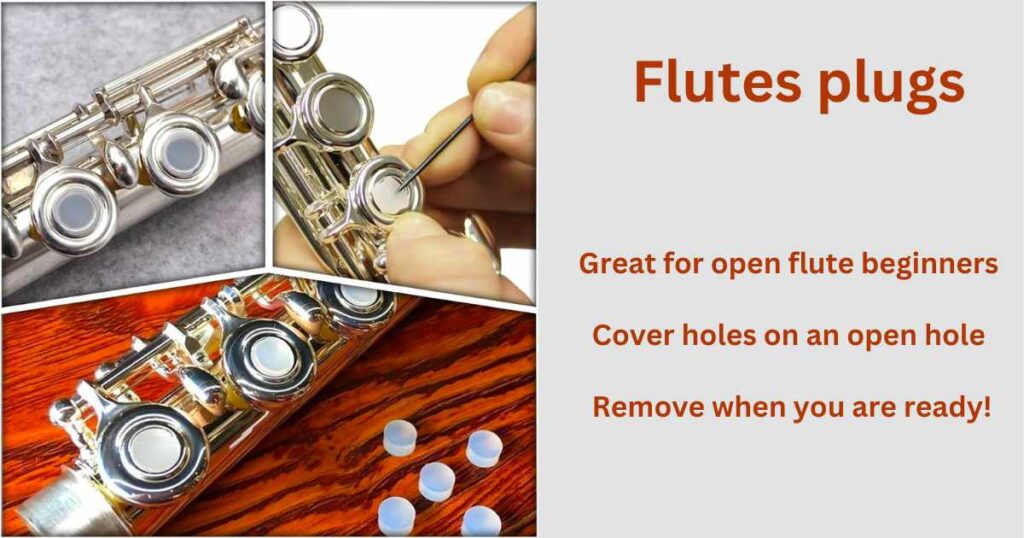
Just slide them in and out. Pick keys to close according to your skill level and your preferred choices.
Flute plugs consist of two pieces. The silicone or plastic surface fits securely into each flute hole. The core section offers extra support to reduce air leakage and enhance tone quality.
Once you have them in hand, it is key that you know how to install them correctly. Carefully place each plug into its respective hole before gently pressing into place with caution so as to prevent damage to either key mechanics that affect sound quality or the plug itself.
Removing the flute plugs on open holed flute
Plugs help improve hand position and provide additional support to balance an instrument.
Once you feel secure — it could be time to remove them.
Plugs may muffle sound quality and create tonal inconsistencies — if sound quality matters to you, play around both ways to find what works the bests.
To remove plugs in a flute, push them through to the other side — it’s that simple!
Remove plugs one by one as you feel comfortable. Some students even choose to leave one or two plugs permanently!
If you are having difficulty playing an open hole flute or reaching for specific notes, leaving the plugs longer might help.
Which one is right for me – Open or Closed hole Flute?
Closed hole flutes are more comfortable to play as they put less strain on your fingers.
A closed hole flute makes playing your first few notes much simpler.
If you are learning flute in school, most schools suggest the closed holes flute for students.
Closed holes flutes are pretty common and have a simpler design, making them a bit more budget-friendly.
Check out my most recent blog post of The 9 Top Beginner Flutes in 2024!
On the flipside, advanced players with some experience can opt for the open holed flute.
Open hole flutes allow for extended techniques that most professionals love!!
Open hole flutes tend greater sound quality, yet are challenging for beginner flute players. Their holes require greater accuracy which may feel less comfortable at first.
Open hole flute playing will become more challenging if you have small fingers or hand tremors.
Open hole flutes are fancier — they come with a higher price tag.
Selmer Prelude FL711 Student Flute
Features
- Affordable model
- Silver plated headjoint and body
- Pleyea Closed hole keys
- Split E mechanism for stable third octave
- C foot joint
- Offset G key
- French style case
Pricing
Prelude FL711 Beginner Flute
Yamaha YFL-222 Beginner Flute
Features
- Beginner Yamaha flute
- Closed key holes
- Traditional Europian pointed key arms
- Optional curved head joint for easier hold and play
- C foot joint
- Offset G key
- Nickel silver body and headjoint
Pricing
Yamaha YFL-222 Flute for Beginners
Pearl Flutes 505 Quantz Series
Features
- Closed or open holes keys
- Silver plated body, headjoint and all mechanisms
- C or B foot joint
- Silver plated finish
- Inline of online G key
- Famous Japanese brand specialing in woodwind instruments
Pricing
C Foot, Offset G, Split E, Open Hole Flutes
C Foot Joint, Offset G, Split E, Closed Hole Keys
C Foot Joint, Inline G, Open Hole Flutes
Open Hole with Offset G, Split E and B Foot
Yamaha 600 Professional Flutes Series
Features
- Handmade nickel silver plated concert flute
- Sterling silver body and silver headjoint
- Perfect balance and a warm, rich sound due to the increased wall thickness
- Pinless left-hand key system for ease transaction to high F-F#
- Open hole keys
- C# trill key
- French-style pointed key arms
- Durable but compact hardshell case included
Pricing
Yamaha YFL-687 with Inline G Key
Yamaha YFL-677 with Offset G Key
Conclusion
Here we come to an end in our discussion on closed hole and open hole flutes – their advantages and disadvantages as well as three popular models from each type.
Now it is up to you to determine which flute best meets your playing style and needs. Remember there is no right or wrong choice here — everything depends on personal preference and desired genre of music created with it.
